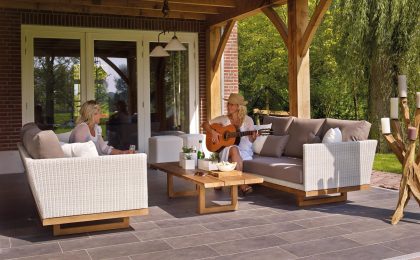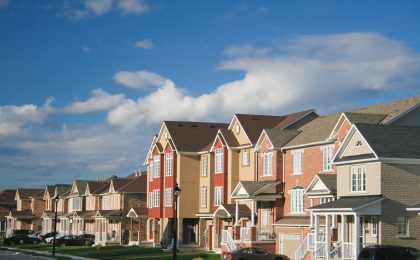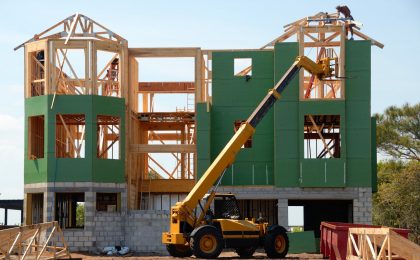If someone asked you how much your home was worth, how would you answer? Would you say market value? Replacement cost? Sentimental value?
Do we even really know what those first two phrases mean? Probably not, so let’s break it down, starting with your house.
Market Value
 My real estate agent says this new patio adds tons of value.
My real estate agent says this new patio adds tons of value.
Your home. Your castle. Your refuge. No matter what you call it, your house is more than just where you hang your hat. So how do we put a price on something that is the most important thing that we own? There are two mains ways of looking at it, and they couldn’t be further apart in how they come to their conclusions. We’ve already mentioned them above, but let’s get into more detail, shall we?
Market value is what most of us think when we talk about home value. Put simply, market value is how much someone would pay for your home on the open market, or what our friends in the real estate world might call fair market value. If you’ve got a home that you bought for $200,000, and someone two years later offers you $300,000, you’d probably wouldn’t say, “Sorry, but I’m pretty sure it’s worth only $200 grand.” Market value can change with a great offer like in this example, or, more likely, it can change over time as your neighborhood increases in value, the other homes around yours improve, you make improvements to your home, or through other supply-and-demand related market functions. For example, there are fewer homes on the market than previous years at the time of this writing, which will affect the market value of what might be traditionally described as “starter homes.”
 No vacancy.
No vacancy.
Replacement Cost
Replacement cost is very different. Put simply, replacement cost is how much it would cost to rebuild your home should you suffer a total loss. It has nothing to do with how much someone might pay for it, but instead deals with the physical costs associated with your home. To determine what the value might be, insurance companies typically do what is called a Replacement Cost estimator. This takes into account the cost of building materials, home features, age of roof and other construction features (to determine depreciation), square footage, and any other factors that would help in figuring out how much it would cost to replace your home as close to as-it-was as possible.

Wait, didn’t they have a chimney?
Knowing the difference between these two forms of valuation can help immensely when talking about insurance. If a home is out in the country, it may be much more expensive to rebuild it than it would be for someone to purchase it, leading to a very confusion conversation between a homeowner and their insurance agent. A house in a big city, however, might have the opposite problem, where sky-high market values can lead to a replacement cost that is lower than what someone might pay for the property. Regardless of where you home might be, knowing these two factors can help you insure your house for the correct amount – replacement cost. After all, we want insurance to rebuild our home, not give us a potentially lesser amount based on a fluctuating number like market value.

Larry, it’s OK! They have replacement cost coverage.
If you’re unsure whether you have your home insured for the correct amount, give us a call or fill out the form below. We will be happy to look over your policy and the details of your home and help make sure you have the coverage you need based on how much it would cost to rebuild your home, good as new.
If you want to know more about Homeowners Insurance in general, click here to check out our blog and video giving you the details on exactly what it covers. Also, check out the video below:

